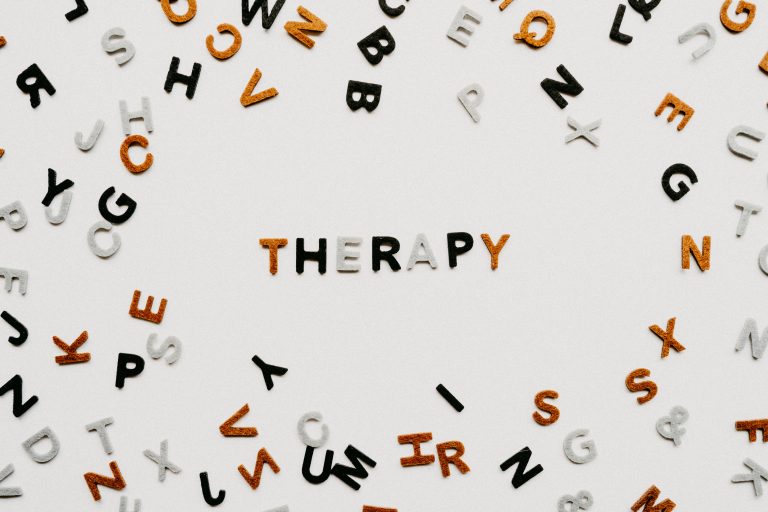“The privilege of a lifetime is to become who you truly are.” — C.G. Jung
Starting therapy can feel daunting. I often tell clients that the first step is the hardest, and even reading this blog is a step in the right direction. Here we’ll explore common worries that arise when starting therapy, and name some of the stumbling blocks and teething issues that many people encounter early on in their therapeutic journey.
But first, let’s unpack a question that seems simple, but often isn’t:
1). What is therapy?
If you asked 100 therapists to define therapy, you’d likely get 100 different answers. Just as no two clients are the same, every therapist brings their own perspective to the work. I’m a relational integrative therapist, which means I believe the relationship between client and therapist is the vehicle for acceptance and change.
I draw on a range of approaches, from psychoanalysis to cognitive behavioural therapy (CBT), and adapt each session to the individual I’m working with. But at its core, therapy is a safe, confidential space where you feel heard and supported. It’s a space where you can explore, understand, and make meaningful changes to your thoughts, feelings, and behaviours.
You don’t have to be in crisis to start therapy. Many people begin because something just feels ‘off’ or stuck. Therapy isn’t just for emergencies; it’s for anyone, at any point in life.

2). What are the limitations of therapy?
It’s important to have realistic expectations when beginning therapy. Sometimes, people hope therapy will offer quick fixes, advice, or solutions; but that’s not how it works.
Therapists aren’t here to tell you what to do, and we won’t give prescriptive advice. Therapy is a collaborative process, and change takes time. A few sessions won’t solve everything, and any therapist who claims they can fix you instantly probably isn’t working ethically.
Therapists also work within strict ethical frameworks. If your therapist frequently cancels, overshares about their own life, or seems distracted during sessions, those may be signs of blurred boundaries. You deserve to feel respected and held in the work.
Therapists don’t have all the answers, and one of my favourite quotes on this comes from Gestalt therapist Fritz Perls: “If I had the answer, I would give it to you. But I don’t have the answer, and you don’t either. That’s why we’re here together.”
3). Finding the right therapist for you.
The relationship between therapist and client is one of the most important predictors of therapeutic success and so it’s vital to find someone you feel comfortable with.
Start by thinking about the kinds of people you tend to feel most at ease with. Do you find it easier to talk to men or women? Do you connect more with people close to your age, or do you open up more with those who are older or younger?
Much like any relationship, when you find the right therapist, there’s often a sense of ‘clicking.’ That said, it might take a few tries before if feels like the right fit, and that’s perfectly normal. Whenever I meet with a new client, I encourage them to reflect not just on what we talked about, but how they felt in the room with me.
You don’t need to feel totally vulnerable right away, but if something feels persistently ‘off,’ it’s okay to explore other options. There are many types of therapy and therapists out there, and you deserve to find someone who fits.
4). I’ve found a therapist I am comfortable with. Now what?
You’ve done something courageous: you reached out for help and found someone you’re comfortable with. Now it’s time for the first session.
This can feel strange. After all, how often do we sit in a room with someone we don’t know and speak openly about our deepest vulnerabilities, especially while they say little about themselves in return?
The first couple of sessions are usually exploratory. Your therapist may ask about your upbringing, key relationships, or life experiences. Even if you’ve come with a specific issue like social anxiety, they’ll want to get to know the whole picture of you, not just the problem.
You don’t need to arrive with a list. Just show up, as you are. Your therapist will meet you there.

5). Remember, it’s your therapy session.
Therapy works best when you feel safe. If your therapist asks something you’re not ready to answer, it’s okay to say so. There’s no pressure to share everything all at once.
Some topics can feel too raw, especially early on. Until a foundation of trust is built, you might want to take things slowly, and that’s not just okay, it’s healthy. If you feel overwhelmed, let your therapist know. They’ll respect your boundaries and adjust the pace accordingly.
6). Dealing with the emotional aftermath.
Many people feel an emotional ‘hangover’ after their first few sessions. Sometimes, talking about difficult relationships or long-buried emotions can feel like a betrayal, particularly if you’re not used to being this open.
That’s a common and very human response. Therapy is confidential, and the more you can bring of yourself, the more you’re likely to get from it.
If you leave a session feeling especially raw or unsettled, let your therapist know. These reactions are rich with meaning and can offer important insight into your process. Therapy often stirs things up before they settle. You may even catch yourself wondering, “Why did I sign up for this?”
Know that you’re not alone, and most people (including your therapist!) have probably felt that way at some point.
Final thoughts
Every qualified therapist in the UK has gone through personal therapy during their training. We’ve sat in the exact position you’re in now; uncertain, vulnerable, maybe even a little resistant. We know how brave it is to start.
If you’ve made it to the end of this blog, well done! You’ve already taken a meaningful step towards prioritising your wellbeing.
If you still have questions, we’re here to help. Our team at TRC is always happy to talk through any concerns you might have about starting therapy.
When it comes to therapy, you have nothing to lose and everything to gain.
Whenever you’re ready, we’ll be here.
References:
Jung, C.G., 1958. The Undiscovered Self. London: Routledge.
Perls, F.S., Hefferline, R.F. and Goodman, P., 1951. Gestalt Therapy: Excitement and Growth in the Human Personality. New York: Julian Press.
Author: Paige Wilson
Psychotherapist





